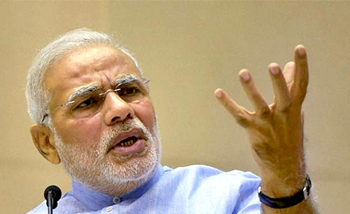New Delhi, Mar 10: Seeking to insulate his government from the controversy, Prime Minister Narendra Modi said on Monday that Jammu and Kashmir (J&K) had kept the Centre in the dark over the release of separatist leader Masrat Alam.

“I want to assure the House and the nation, after government formation (in J&K) whatever developments have taken place are not in consultation with the Centre. Nor have they informed us about it,” the prime minister said, even as the Opposition dared the BJP to walk out of the coalition led by Chief Minister Mufti Mohammad Sayeed.
Modi said Opposition members were free to make political comments as the BJP is part of the government in J&K. “It is your right to criticise the government there.
You should do it to the fullest. However, we should not send a message to the state or outside the nation that we speak in different voices on matters related to the unity of the nation,” he said.
Modi said there is no reason for his government to keep quiet on the matter. “We have sacrificed Shyama Prasad Mookerjee for this. Please do not teach us patriotism,” the prime minister said, leading to protests from Opposition benches.
As agitated members raised the heat in the Lok Sabha and Rajya Sabha, Home Minister Rajnath Singh said the Centre was not fully satisfied with the explanation furnished by the state government on the reasons for Alam’s release.





Comments
Add new comment